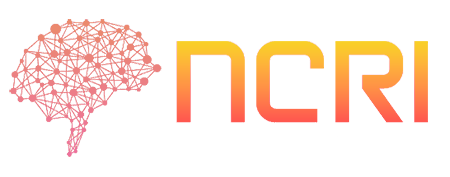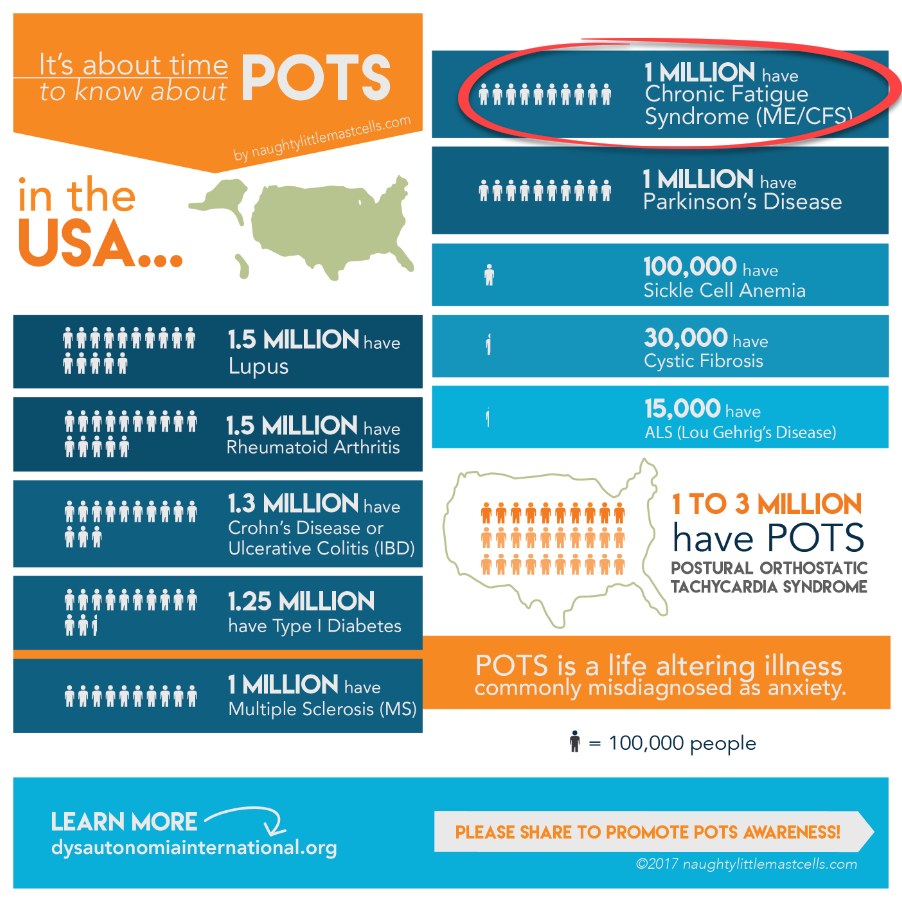We are partners with Smart Patients, a grass-roots online community where patients and their families learn from each other. Here you can get information and support from patients who have experiences to share with you. When you’re ready, we invite you to join the Smart Patients ME/CFS and Long Covid community by visiting: The Neurocognitive Research Institute Smart Patients Community
National Institute of Neurological Disorders and Stroke offers a vast amount of information on brain and nervous system disorders listed from A to Z, including Alzheimer’s disease, Parkinson’s disease, multiple sclerosis, migraine, traumatic brain injury, epilepsy, cerebral hypoxia, and inflammatory myopathies. Definitions, treatments, prognosis, research, and additional links for each disorder are provided.
ME/CFS
- American ME and CFS Society (AMMES) primarily serves the needs of the ME/CFS community through resources and support while building capacities for understanding through education. The AMMES website features an online Physician and Clinic Database for finding an ME/CFS specialist, an online treatment database with information on hundreds of medications currently being used, an online research library with thousands of abstracts, a financial crisis fund, and an online classified ads service called AMMES Connect. The AMMES newsletter disseminates the latest ME/CFS research findings, news, blog posts, patient advocacy information, and policy initiatives.
- Caregiver Wisdom is focused on supporting family caregivers, especially those with loved ones with chronic illnesses like ME/CFS, Long COVID, POTS, fibromyalgia, MCAS, chronic Lyme disease, etc.
- Solve ME/CFS Initiative (SMCI), formerly the CFIDS association of America, this organization offers a panoply of resources as well as specific research programs intended for patients, researchers, and healthcare providers. Their website also features a free monthly webinar series that is open to the public.
- ME Association (UK) provides support for patients and works to increase the biomedical knowledge and funding of ME. They publish an extensive clinical and research guide written by ME Association medical adviser, Dr Charles Shepherd, and consultant neurologist, Dr Abhijit Chaudhuri, from the Essex Centre for Neurosciences.
- Dysautonomia International is a non-profit that seeks to improve the lives of individuals living with autonomic nervous system disorders through research, physician education, public awareness and patient empowerment programs. POTS is one of the symptoms of dysautonomia and it is common in patients with ME/CFS (see graphic below).
Quantitative EEG Resources for Researchers and Clinicians
- Applied Neuroscience, Inc. provides free webinars pertaining to the application of qEEG and ground-breaking 3-dimensional electrical neuroimaging (swLORETA) methods to study brain disorders.
- Exact Low Resolution Electromagnetic Tomography (eLORETA) Key-Institute for Brain-Mind Research, provides links to freely downloadable LORETA software and scientific papers on the latest advancements in both standardized and exact LORETA 3-dimensional EEG source imaging inverse methods (Pascual-Marqui et al., 1994, 2002, 2011, 2014).
- The International Society for Neuroregulation and Research (ISNR) is a membership organization that comprises people from various professional disciplines doing neurotherapy, neurofeedback training, and neurofeedback research. ISNR supports education and excellence in the field of neurofeedback training and neurotherapy.
- The Association for Applied Psychophysiology and Biofeedback (AAPB) promotes scientific understanding of biofeedback methods used in practice of self-regulation to enhance health and performance. It is the association’s vision to integrate self-regulation into everyday life through development, dissemination and utilization of knowledge to improve health and the quality of life through research, education, and practice.



